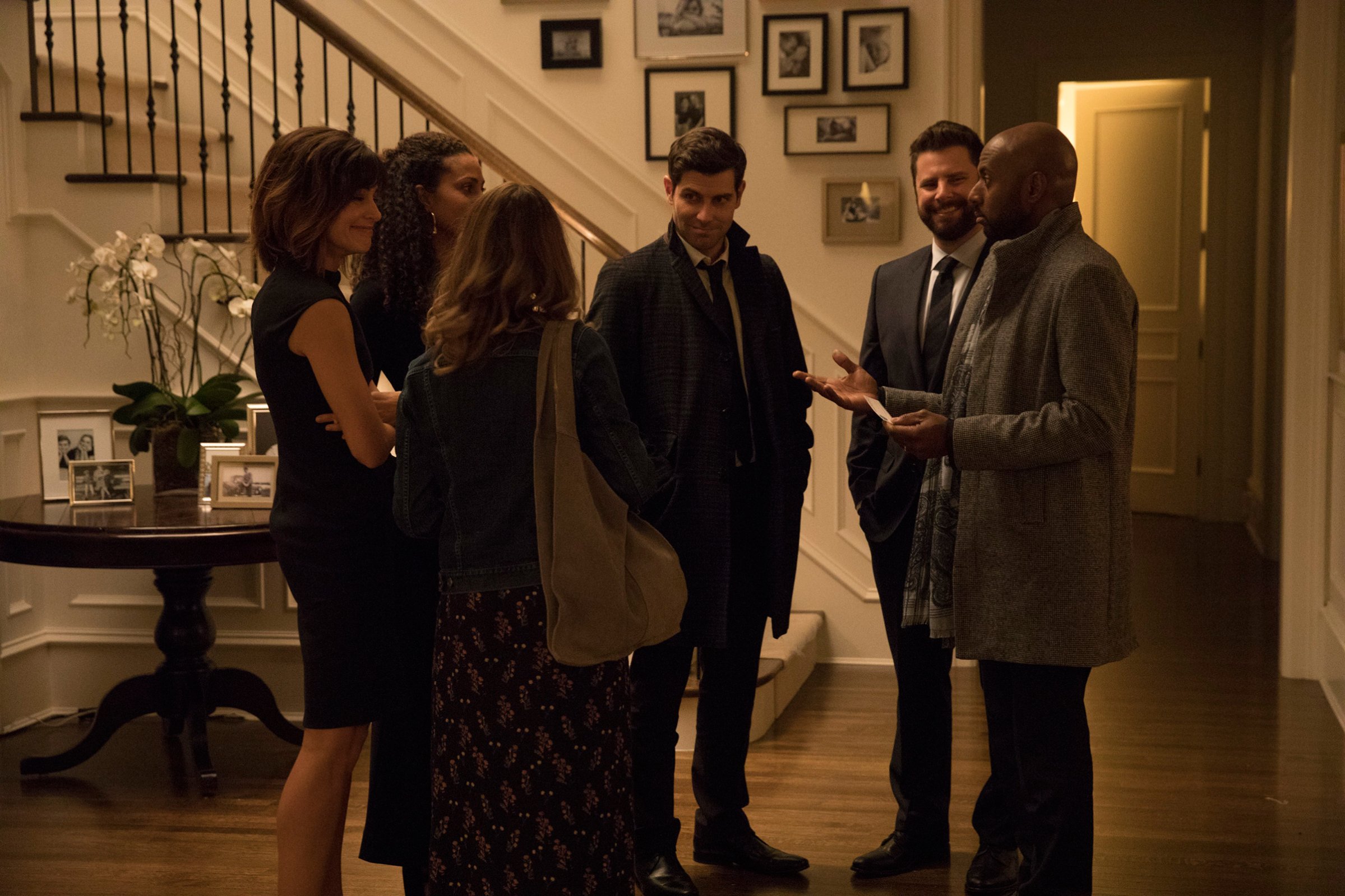
A Million Little Things could’ve been conceived by an algorithm programmed to synthesize popular TV shows. Like This Is Us, it’s an ensemble drama designed to elicit gasps and tears. Like 13 Reasons Why, it takes place in the aftermath of a suicide. And, as with something a computer would write, many of its plot points feel hackneyed and implausible all at once.
At the center of the show, which airs on ABC starting Sept. 26, are four middle-aged friends in Boston who’ve reached crossroads in their lives. Eddie (David Giuntoli of Grimm) channels his thwarted rock-star dreams into an extramarital affair while working up the courage to leave his wife. Male breast cancer survivor Gary (Psych’s James Roday) distracts himself from fears of relapse by sleeping with women from his support group. Rome (Weeds alum Romany Malco) longs to be a filmmaker but is stuck directing commercials; in his first scene, he’s writing a suicide note. It’s Gary who saves Rome’s life by calling with the news that their fourth friend, Jon (Ron Livingston), has just jumped to his death.
The three surviving pals are shocked, not least because Jon seemed so content, a slick, energetic real estate mogul whose motto was “everything happens for a reason.” His friends are left to probe the meaning behind his death. When the men met, years earlier, in a stuck elevator, Jon sealed their new friendship with season tickets to the Bruins. The tradition endured, and in the aftermath of his death, the group vows to use those hockey games to do the same kind of bonding they did in that elevator.
Though the pilot is messy and derivative, and the stronger subsequent episodes can still feel cloying, there’s reason to hope A Million Little Things will keep getting better. It’s the rare show about men that bothers to flesh out their wives, girlfriends and kids, and its cast of seasoned TV actors lends broad characters dimension. Stories that take male friendship seriously are few and far between these days—and now that the word masculinity so often comes paired with the word toxic, this gentler form of male identity seems ripe for exploration.
More Must-Reads From TIME
- The 100 Most Influential People of 2024
- The Revolution of Yulia Navalnaya
- 6 Compliments That Land Every Time
- What's the Deal With the Bitcoin Halving?
- If You're Dating Right Now , You're Brave: Column
- The AI That Could Heal a Divided Internet
- Fallout Is a Brilliant Model for the Future of Video Game Adaptations
- Want Weekly Recs on What to Watch, Read, and More? Sign Up for Worth Your Time
Contact us at letters@time.com